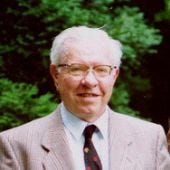
Materialist science claims that the physical universe is merely an accidental collocation of atoms, that life and consciousness are extremely unlikely accidents of nature and evolution; humanity is therefore a meaningless blip in an essentially dead mechanism. Spiritual teachings claim, on the contrary, that the universe is actually a manifestation of consciousness, nothing but life and consciousness; it is in fact the body of God, and there is therefore no such thing as inorganic matter.
Sometimes poets agree with this perspective (1):
- William Blake: “Every rock is deluged with Deity”
- Gerard Manley Hopkins: “The world is charged with the grandeur of God”
- Alexander Pope: “All are but parts of one stupendous whole, Whose body nature is and God the soul”
It is therefore interesting to discover scientists, and others with a scientific background, who think along these lines. James Lovelock’s Gaia hypothesis, which claims that the Earth is a living organism, is well known (2). Peter Russell has followed in his footsteps, and I have referred to his book The Awakening Earth (3) in previous articles. This was first published in 1982, and was republished the following year with the title The Global Brain (4). The suggestion is therefore that the Earth is intelligent.
Can we go further and say that the universe is intelligent? Interestingly, The Intelligent Universe is the title of two books, one by David Foster (5), a highly qualified scientist, specialising in cybernetics, whose work is related to that of Gurdjieff and Ouspensky, thus a spiritual perspective, and another by Sir Fred Hoyle (6), who is usually described as an atheist, or agnostic.
Hoyle is a controversial figure, famous for being a critic of the Big Bang theory, advocating instead the Steady State theory, which has now been discredited, at least according to conventional modern cosmologists (that would be a debate for another time). One could conclude, therefore, that he is a marginal figure whose views should not be taken seriously. I think that would be a mistake (7). I cannot go into great detail here, but in this book he claims that life could not have started by random processes, thus not by chance. He is also a savage critic of Darwinism: “How has the Darwinian theory of evolution by natural selection managed, for upwards of a century, to fasten itself like a superstition on so-called enlightened opinion? Why is the theory still defended so vigorously? Personally, I have little doubt that scientific historians of the future will find it mysterious that a theory which could be seen to be unworkable came to be so widely believed” (p25).
Here are two quotes from his final three chapters:
- “The origin of the Universe… requires an intelligence” (p189).
- discussing the problem of the “vast unlikelihood that life, even on a cosmic scale, arose from non-living matter”: “There is no shortage of scientists who will shout this problem down, but in my opinion their protestations are more dogmatic than scientific. By dogmatic I mean that they are arguing from ideas that are pre-set to begin with, instead of allowing their thinking to develop and even to change drastically as new facts become available. The pre-set state of mind… leads to all manner of excuses and deceptions when life’s complexity comes up for explanation” (p242–3).
In other words, these scientists’ commitment to materialist explanations leads to some dubious arguments.
The epigram to David Foster’s book quotes Einstein describing a scientist: “His religious feeling takes the form of a rapturous amazement of the harmony of natural law, which reveals an intelligence of such superiority that, compared with it, all the systematic thinking and acting of human beings is an utterly insignificant reflection”. I have heard Einstein described as an atheist (by Richard Dawkins, perhaps not a reliable source). Is he not talking here about the Divine Mind?
Foster’s second chapter begins with a definition of the theory of the intelligent universe: “The total universe, inclusive of all aspects of matter and mind, shows a construction virtually indistinguishable from that of an electronic computer, and all its workings are in the nature of intelligent data processing. Thus, for brevity, we describe it as an ‘Intelligent Universe’ ”.
He continues: “The central idea is that the whole universe is simply one vast mind. This is not a new idea, and a similar point of view was stated by Plato over two thousand years ago in his ‘world of ideas’ and more recently in this century by Sir Arthur Eddington when he stated, ‘We begin to suspect that the stuff of the world is mind stuff’ ” (p39).
So it’s not just the poets who think this. Thank goodness for new-paradigm scientists (and a philosopher of antiquity).
Footnotes:
(1) The following three quotes come from A Vision of the Aquarian Age, George Trevelyan, Gateway Books, 1994, p7.
(2) Gaia, A New Look at Life on Earth, 1979, new edition OUP, 1995
(3) Routledge & Kegan Paul
(4) published by J. P. Tarcher
(5) Abelard, 1975
(6) Michael Joseph Ltd., 1983
(7) He was a Cambridge graduate, a distinguished theoretical physicist, Plumian Professor of Astronomy and Experimental Philosophy, associate member of the American National Academy of Sciences (the Academy’s highest award for non-American scientists), and he was of course knighted for services to science.
